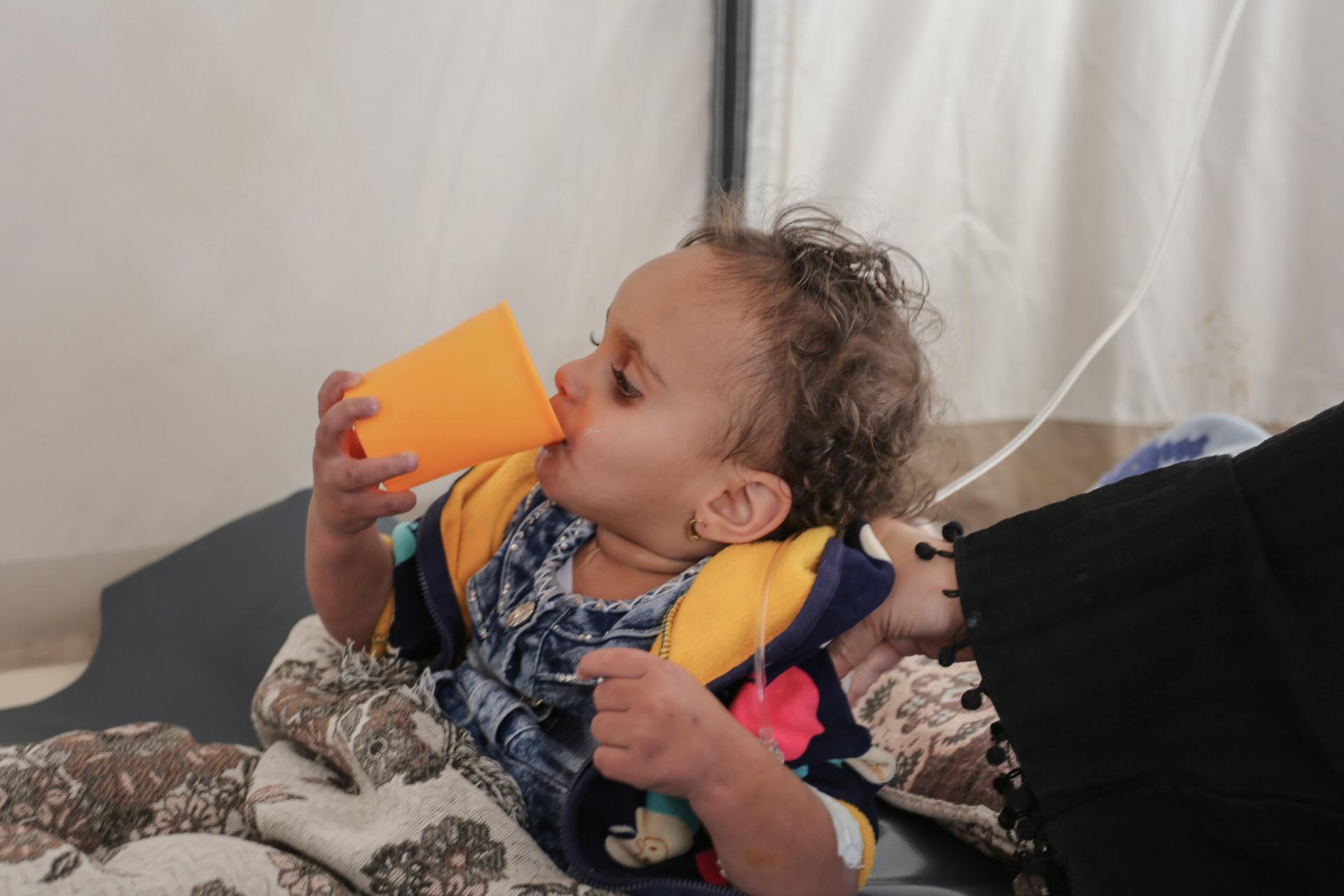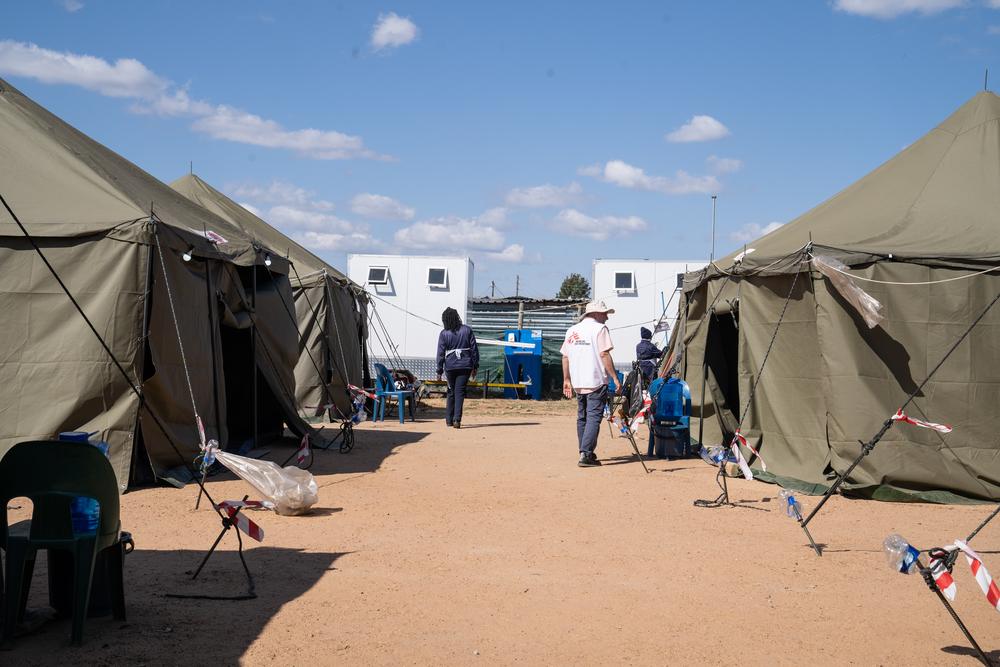Southern Africa: Three Questions on Cholera with Dr Mounia Amrani
Last week, we shared an article explaining what our teams are doing in Hammanskraal to curb the Cholera outbreak.
Our teams have played a crucial role in the response by guiding the establishment of a two-bed cholera treatment unit (CTU) in the community of Kanana. So far, the facility has treated 112 patients – 50 cases in the first 48 hours, escalating to 62 cases in the following 48 hours. Thus far, 21 patients have been referred by the CTU to nearby Jubilee Hospital, which has 50 cholera beds.

In the video below, Dr Mounia Amrani answers three questions on Cholera in Southern Africa
She talks about:
- Where we’ve seen cholera outbreaks in the region.
- What our response has been.
- What people in affected areas can do to protect themselves from spreading or catching the disease
What is Cholera?
Caused by a water-borne bacterial infection, cholera is transmitted through contaminated food or water or through infected people's contact with faecal matter or vomit. A patient can lose up to 25 litres of fluid per day. Cholera can cause severe diarrhoea and vomiting and rapidly prove fatal within hours if not treated. But cholera is very simple to treat – most patients respond well to oral rehydration salts, which are easy to administer. In more serious cases, intravenous fluids are required. Ultimately, no one should die of cholera - yet well over 100,000 do each year.

3 Questions - Cholera in Southern Africa - Mounia Amrani.mp4
MP4 365 MB
About Doctors Without Borders (MSF)
Doctors Without Borders (MSF) is a global network of principled medical and other professionals who specialise in medical humanitarian work, driven by our common humanity and guided by medical ethics. We strive to bring emergency medical care to people caught in conflicts, crises, and disasters in more than 70 countries worldwide.
In South Africa, the organisation is recognised as one of the pioneers of providing Antiretroviral Treatment (ART) in the public sector and started the first HIV programmes in South Africa in 1999. Until today, the focus of MSF’s interventions in the country has primarily been on developing new testing and treatment strategies for HIV/AIDS and TB in Eshowe (Kwa-Zulu Natal) and Khayelitsha (Western Cape).
In Tshwane, we run a migration project, and we offer medical and psychosocial care to migrants, refugees, and asylum seekers, who struggle to access public health services under South Africa’s increasingly restrictive.
Previously we offered free, high-quality, confidential medical care to survivors of SGBV in Rustenburg.
To learn more about our work in South Africa, please visit this page on our website (www.msf.org.za). To support MSF’s work:
- SMS “JOIN” to 42110 to donate R30 Once-off
- Visit https://www.msf.org.za/donate
